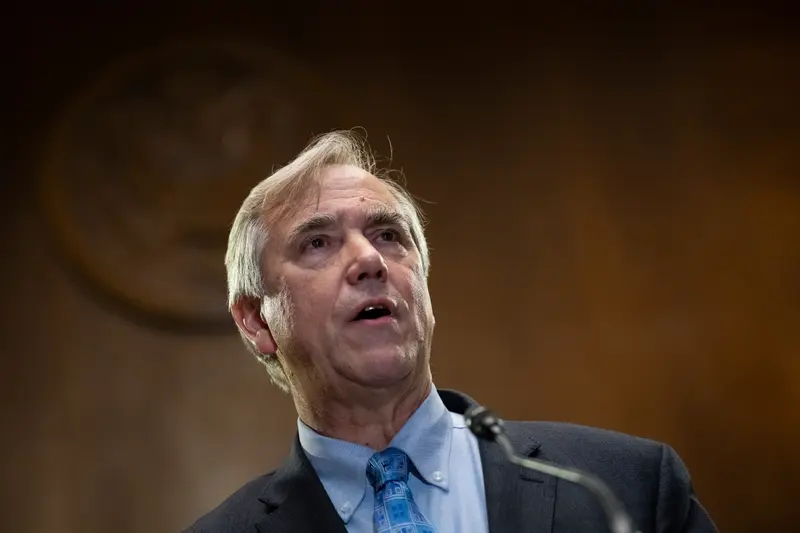Congress is one step closer to prioritizing stillbirth prevention at the federal level.
The U.S. Senate unanimously passed the Maternal and Child Health Stillbirth Prevention Act, which ensures that federal maternal and child health dollars can be used for stillbirth prevention efforts. Every year in the U.S., more than 20,000 pregnancies end in the death of an expected child at 20 weeks of pregnancy or more. Research shows as many as 1 in 4 stillbirths may be preventable.
The passage in the Senate marks a milestone for the bill, which was first introduced last year but never came up for a vote in either the House or Senate. This time, the bill was introduced in July and passed by the Senate on Sept. 30.
ProPublica’s ongoing reporting on stillbirths over the last two years has revealed systemic failures that have contributed to the country’s stillbirth crisis, from federal agencies not prioritizing research, awareness and data collection to the racial disparities that have led to higher stillbirth risks in Black communities. In March, the National Institutes of Health released a report calling the country’s stillbirth rate “unacceptably high” and issued a list of recommendations to reduce it, many of which were aimed at the NIH and the Centers for Disease Control and Prevention.
Sen. Jeff Merkley, D-Ore., reintroduced the bill with Sen. Bill Cassidy, R-La. The next day, U.S. Reps. Ashley Hinson, R-Iowa, and Alma Adams, D-N.C., introduced the measure in the House.
“ProPublica’s investigative reporting has helped call public attention to this major public health concern, and with the tremendous advances we’ve made in modern medicine, we have the capability to do much more,” Merkley said in a statement.
He urged the House to quickly pass the bill, citing the devastating impact stillbirth has on parents and families. He emphasized that some stillbirths can be prevented.
Sen. Chuck Grassley, R-Iowa, an original co-sponsor, said he was grateful the Senate came together to unanimously pass the legislation and echoed the hope that it continues to move swiftly through Congress.
“Effective problem solving starts with having a thorough understanding of root causes, contributors and vulnerabilities,” he said in a statement. “Our bill would get rid of limits on federal resources so that the medical community can further pursue evidence-based efforts to support expectant moms and save babies’ lives.”
The bill united lawmakers from both sides of the aisle and has the power to “help save lives and ensure more mothers have the chance to raise their babies,” said Sen. Tammy Duckworth, D-Ill., who added she is eager for Congress to send it to President Biden’s desk for his signature.
“In one of the richest countries in the world, our rising maternal mortality rate and high number of stillbirths is absolutely unconscionable,” said Duckworth, who has worked on other maternal and child health legislation.
The nonprofit Healthy Birth Day, which is based in Iowa, championed the bill and celebrated its passage in the Senate. CEO Emily Price traveled to Washington, D.C., last month with families that have suffered stillbirths to raise awareness about the crisis.
“This is a huge win for families who have endured the tragedy of stillbirth and a huge win to keep future families from facing life without their baby,” Price said. ProPublica’s reporting, she said “helped show Congress, staffers and Americans the reality of living through stillbirth and the major impacts it can have on families and communities.”
Less than a third of state health departments are using money allocated under Title V Maternal and Child Health block grants for stillbirth reduction, Price said. The bill, which doesn’t provide additional funding, amends the Social Security Act to explicitly permit public health officials to use those federal dollars for stillbirth prevention initiatives.
Healthy Birth Day, which created a Count the Kicks app to encourage expectant parents to be aware of and track movements in the womb, has worked with health departments to focus on the importance of monitoring fetal movement.
Price said it is also critical that lawmakers pass another key stillbirth prevention bill currently in Congress, the Stillbirth Health Improvement and Education (SHINE) for Autumn Act. That sweeping legislation addresses significant gaps in stillbirth research, data, awareness and fetal autopsy training.
Adams, co-chair of the Black Maternal Health Caucus, said she was proud to see the Maternal and Child Health Stillbirth Prevention Act pass in the Senate and hopes her colleagues in the House will soon follow suit. Congress, she said, is finally treating stillbirth “with the urgency it deserves.”
“For too long, stillbirth has been a silent crisis,” Adams said, “but the mothers and families experiencing this crisis deserve a voice.”






